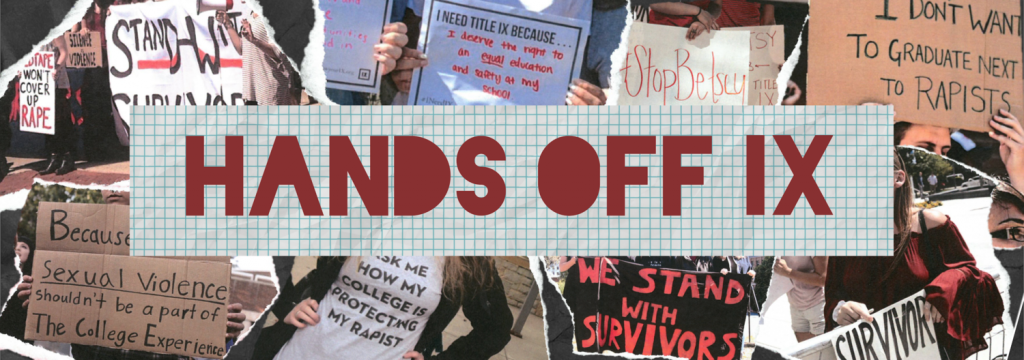Recent release of the Department of Education’s regulations governing sex discrimination at federally funded institutions, Title IX, has sparked much controversy and conversation. The first federal alteration since1997, these changes have been received with mixed criticism and support. The bulk of the changes made to Title IX address issues of sexual assault at public institutions, initiating a net loss of protection
for students experiencing sexual harrassment and assault. According to Inside Higher Ed, the most significant of these alterations include:
1. “Colleges are not obligated to follow a specific time frame for responding to reports of sexual misconduct.”
2. The definition of sexual harassment has been changed to the following: “Any unwelcome
conduct that a reasonable person would find so severe, pervasive and objectively offensive that it
denies a person equal educational access.” This excludes reports of domestic violence, stalking,
and dating violence.
3. “Colleges are not obligated to handle complaints of sexual harassment that occur
outside the United States.” This specifically affects students who engage in semester abroad
and exchange programs.
4. Colleges are not required to respond to multiple informal harassment complaints against a single respondent.
5. The university’s response must include “due processing” and the burden of proof has been raised to “preponderance of the evidence” or “clear and convincing” evidence, despite sexual assault cases often resulting in little to no evidence due to the nature of the crime.
6. Colleges are not required to respond to sexual assault which has occurred off-campus,
including university acknowledged sororities, fraternities, and sport housing.
The regulatory changes to Title IX also include increased protections. Colleges will now be required to employ three separate trained officials to respond to Title IX accusations, instead of one Title IX coordinator. This change is particularly challenging for small colleges to uphold, as many do not have the administrative capacity to employ and train additional facilitators. In response, the Department of
Education has offered a grace period of several months for colleges to implement these changes
to their administration.
In response to this regulation, colleges in the Greater Philadelphia Area have collaborated to create a Title IX consortium to pool resources and knowledge with nearby institutions. This consortium includes Widener, Ursinus College, Bryn Mawr College, University of the Sciences, La Salle University, and others, as they collaborate to meet the new policy and procedural changes.
Eastern University is not included in such a consortium and has not put out any information
regarding regulatory changes on campus. According to the university webpage, “Eastern University complies with state and federal laws, as well as good practice as we care for our
community members. In this regard, review the information on the Title IX policies here.” When
the link is followed, it brings you to a 404 Error: Page Not Found. Across the nation students are pushing
back on these revised regulations, urging their universities to implement the Title IX regulations
alongside a university policy which offers protections beyond the Department of Education
minimums. Princeton University will implement both a “Title IX Sexual Harassment policy” and
“University Sexual Misconduct Policy”. Students for Survivors of the University of Cincinnati
are concerned the university will take these federal regulations “as an opportunity to limit
responsibility rather than uphold survivors’ rights”. Students at Stanford University have
rallied, urging the university to create a sexual misconduct policy alongside complying with the
federal regulations.
Sources: Inside Higher Ed; Department of
Education; Eastern University

